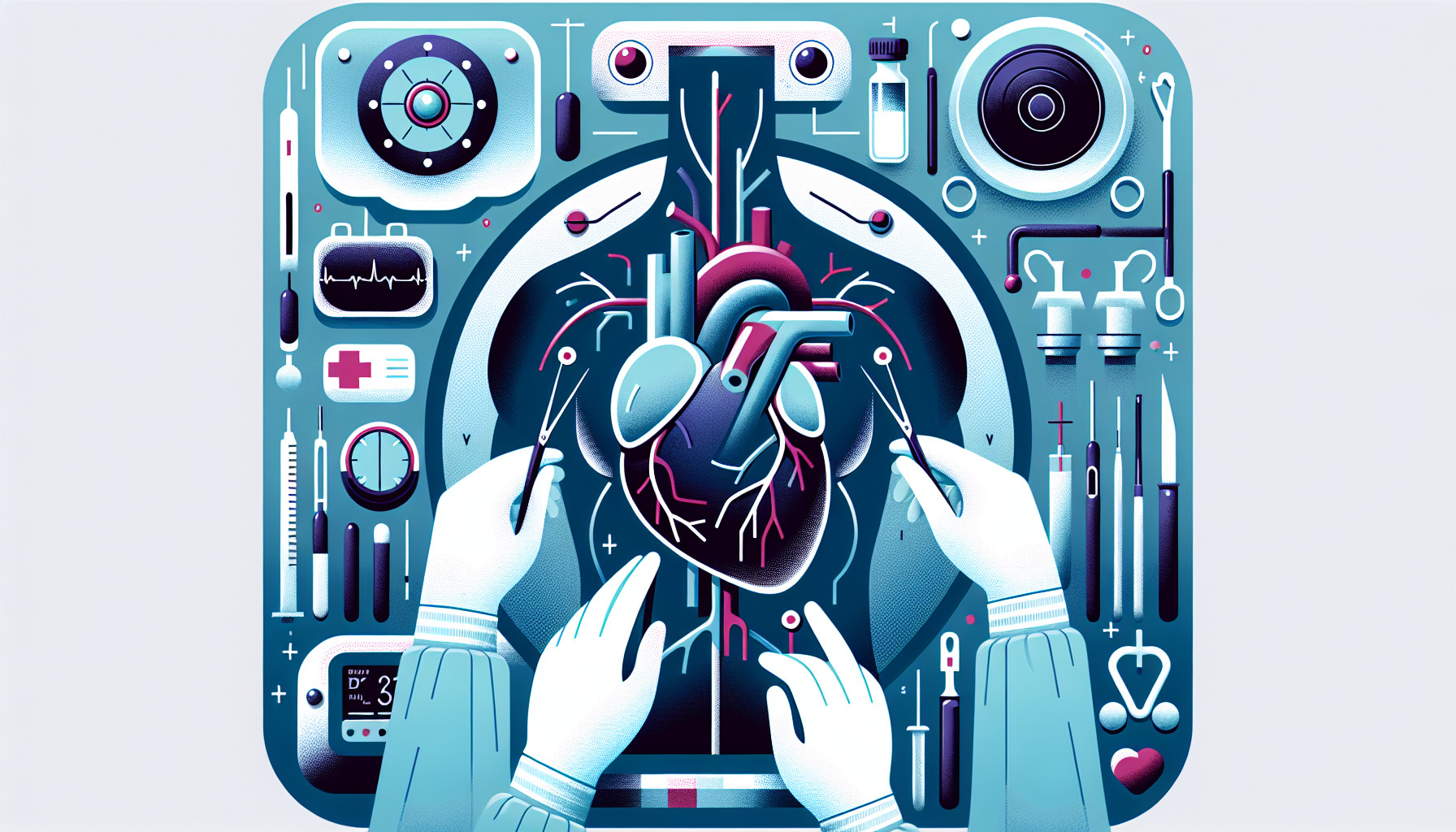Our Summary
This study looked at the effectiveness of a particular type of training simulator for heart surgery. 26 surgeons, who had never practiced a certain type of heart surgery, were trained on a simulator for 15 hours. After this, their skills were evaluated and they were split into two groups based on their scores. One group had scored between 12-36 points, and the other group consisted of the remaining trainees. Both groups then received a further 15 hours of training on a different simulator.
The study found that the surgeons improved their skills after training on the first simulator. After training on the second simulator, the group that had initially scored between 12-36 points showed significant improvement, and performed better than the other group. The second group did not show a significant improvement after training on the second simulator. The researchers concluded that those who did well on the first simulator also did well on the second, suggesting that the second simulator is useful for training.
FAQs
- What was the purpose of this study on training simulators for heart surgery?
- Did all surgeons show significant improvement after training on the second simulator?
- Did the study find a correlation between performance on the first simulator and the second simulator?
Doctor’s Tip
A doctor might tell a patient undergoing coronary artery bypass surgery to make sure to follow their post-operative care instructions closely, including attending all follow-up appointments, taking prescribed medications as directed, and participating in cardiac rehabilitation if recommended. It is also important for patients to make lifestyle changes such as maintaining a healthy diet, quitting smoking, controlling blood pressure and cholesterol levels, and staying physically active to improve their overall heart health and reduce the risk of future heart issues.
Suitable For
Patients who are typically recommended for coronary artery bypass surgery include those with severe coronary artery disease, blockages in multiple coronary arteries, or those who have failed other treatments such as medication or angioplasty. Other factors that may indicate the need for coronary artery bypass surgery include heart failure, angina that is not controlled with medication, or a high risk of heart attack. Ultimately, the decision to recommend coronary artery bypass surgery is made on an individual basis by a cardiologist or cardiac surgeon after a thorough evaluation of the patient’s medical history and condition.
Timeline
Before coronary artery bypass surgery: The patient will undergo various tests and evaluations to determine the severity of their heart condition and to assess their overall health. They may be prescribed medications to manage their symptoms and to prepare their body for surgery.
Day of surgery: The patient will be admitted to the hospital and prepared for the procedure. They will be given anesthesia before the surgery begins.
During coronary artery bypass surgery: The surgeon will make an incision in the chest, and bypass grafts will be attached to reroute blood flow around the blocked arteries. The surgery can take several hours to complete.
After coronary artery bypass surgery: The patient will be monitored in the intensive care unit (ICU) for a period of time to ensure that they are stable. They will gradually be moved to a regular hospital room as they recover. Physical therapy and cardiac rehabilitation may be recommended to help the patient regain strength and function.
Follow-up care: The patient will have regular follow-up appointments with their healthcare provider to monitor their progress and to make any necessary adjustments to their treatment plan. Lifestyle changes, such as a healthy diet and regular exercise, may be recommended to help prevent future heart problems.
What to Ask Your Doctor
- What is the success rate of coronary artery bypass surgery?
- What are the potential risks and complications associated with this surgery?
- What is the recovery process like after coronary artery bypass surgery?
- How long will it take to fully recover and resume normal activities?
- Are there any lifestyle changes or medications that will be necessary after the surgery?
- How many coronary artery bypass surgeries have you performed, and what is your success rate?
- Are there any alternative treatments or procedures to consider instead of coronary artery bypass surgery?
- What will the follow-up care and monitoring look like after the surgery?
- How long will the benefits of the surgery last, and will further procedures be needed in the future?
- Are there any specific factors about my medical history or current condition that may affect the outcome of the surgery?
Reference
Authors: Wu S, Fu YH, Zhao H, Ling YP. Journal: Heart Surg Forum. 2020 Oct 16;23(6):E774-E780. doi: 10.1532/hsf.3185. PMID: 33234215
